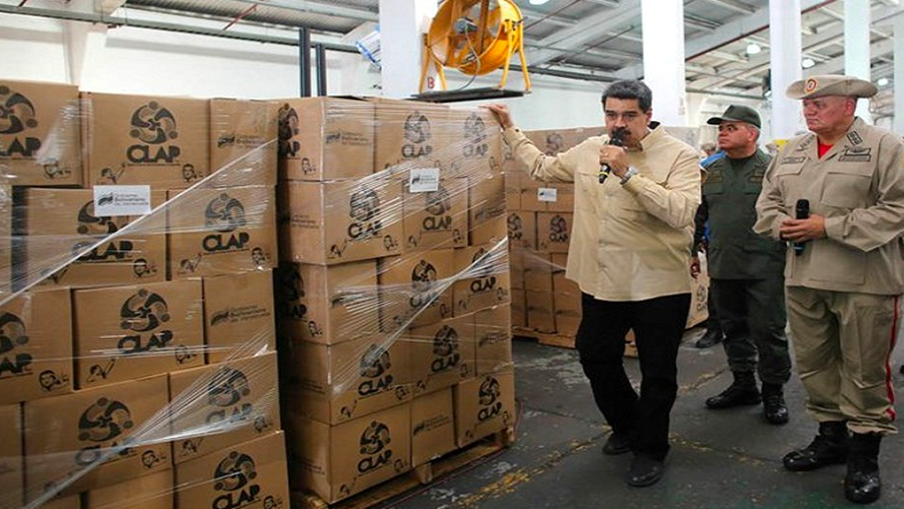A Colombian businessman and the network he leads has profited from corruption in Venezuela, including through a scandal-ridden food aid program, according to U.S. authorities.
Alex Nain Saab Moran (Saab) has laundered hundreds of millions of dollars in corruption proceeds around the world through a network of shell companies, business partners and family members, according to the U.S. Treasury Department, which sanctioned him Thursday. He’s personally profited from overvalued contracts, including on deals with the Venezuelan food subsidy program called Los Comités Locales de Abastecimiento y Producción, better known as CLAP, the Treasury said.
Saab and his main business partner were also charged Thursday by U.S. prosecutors in an eight-count criminal indictment, accusing them of laundering the proceeds of a foreign bribery scheme relating to a Venezuelan government-issued housing contract. Prosecutors said they seek forfeiture of more than $350 million, representing the amount of funds involved in the case.
Created by Nicolas Maduro in 2016, CLAP’s purpose was to provide subsidized food ration boxes to poor Venezuelans, according to the Treasury. A majority of Venezuelans rely on some food aid. But the U.S. government has said as much as 70 percent of the program’s funds have been lost to corruption; the Treasury cited graft in the CLAP program as part of a May advisory warning financial institutions about widespread public corruption in Venezuela.
“The corruption network that operates the CLAP program has allowed Maduro and his family members to steal from the Venezuelan people,” said Treasury Secretary Steven Mnuchin. “They use food as a form of social control, to reward political supporters and punish opponents, all the while pocketing hundreds of millions of dollars through a number of fraudulent schemes.”
Saab’s involvement with the program began in CLAP’s first year, the Treasury said, when he and his business partner, Alvaro Enrique Pulido Vargas (Pulido), who was also sanctioned Thursday, devised a corporate structure to acquire food from a foreign distributor, assemble it in a foreign country and ship it to Venezuela at a maximum profit. Two of Saab’s sons, and the son of Pulido, were sanctioned Thursday as well, each for their roles in the network.
Several companies Saab and Pulido own or control were used in the food corruption scheme, including United Arab Emirates-based Asasi Food FZE, Turkey-based Mulberry Proje Yatirim Anonim Sirketi (Mulberry)— which changed its name to Mulberry Proje Ve Dış Ticaret Anonim Şirketi in September 2018, according to Turkish corporate records—and the companies held by Hong Kong-incorporated Group Grand Limited, a primary entity in the global network, the Treasury said.
CLAP would engage with contractors, which would then sub-contract the work of purchasing food or assembling the boxes; in many cases, the subcontractors provided boxes with substandard nutritional value, according to the Treasury.
